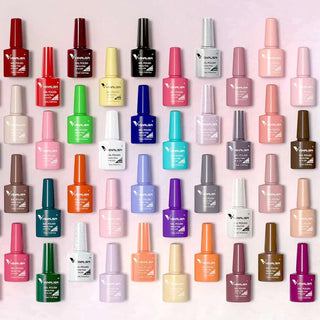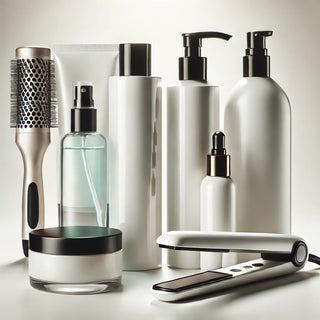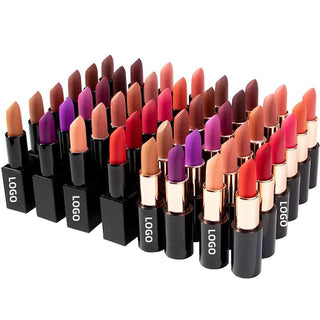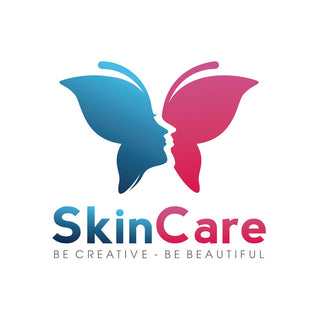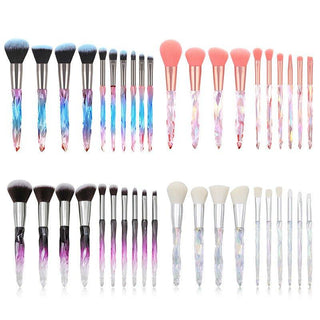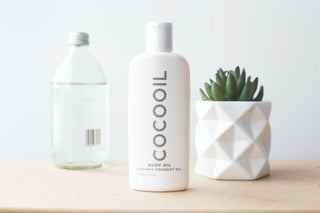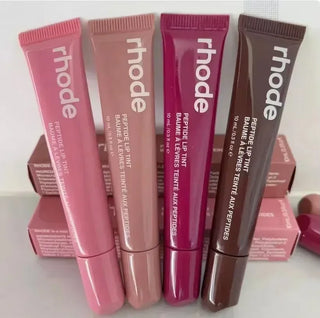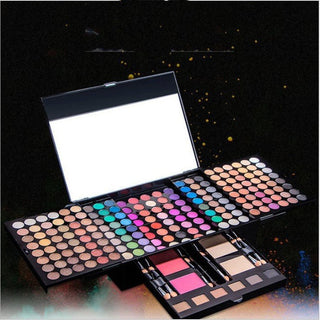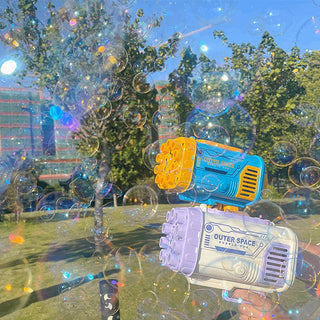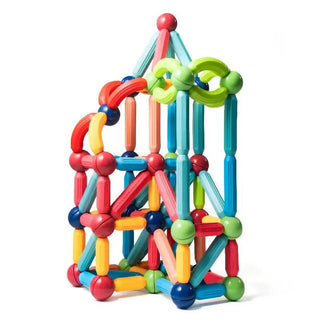Getting older is totally normal, but let's be real, nobody wants their skin to look like it's been through a war. The good news is, you don't need to spend a fortune or have a PhD in chemistry to keep your skin looking its best. We're talking about the best anti age skin care products out there for 2025. From understanding what's actually happening to your skin to picking out the right stuff to put on it, this guide has you covered. We'll break down what works, what doesn't, and how to get that healthy glow without all the fuss.
Key Takeaways
- Your skin changes as you get older because of time, sun, and other stuff. Knowing this helps you pick the right anti age skin care products.
- Look for ingredients like Vitamin C and sunscreen to even out your skin tone and protect it. Retinol and peptides are great for smoothing out lines, while ceramides keep your skin moisturized.
- How products get into your skin matters. Some newer ingredients, like bio-retinol alternatives and special peptides, work well when they have a good delivery system.
- Sunscreen is super important every single day to stop sun damage. Niacinamide also helps your skin barrier and can lighten dark spots.
- Taking care of yourself overall, like managing stress, eating well for your gut, and doing gentle face massages, can also make your skin look better and younger.
Understanding Your Skin's Aging Process
So, you're curious about what's actually happening with your skin as the years go by? It's not just about getting older; it's a whole process with different things at play. Think of your skin like a really complex system that's constantly changing, and a lot of that change is tied to how we live and what our bodies are doing.
The Natural Progression of Skin Changes
As we get older, our skin naturally starts to shift. The stuff that makes our skin plump and firm, like collagen and elastin, doesn't get produced as much. This means skin can start to lose some of its bounce and firmness. You might notice fine lines appearing, especially around your eyes and mouth, and your skin might not feel as hydrated as it used to. It's a gradual thing, not like a switch flips overnight. The skin cells also turn over more slowly, which can make your complexion look a bit duller.
Factors Influencing Skin Aging
It's not just time ticking by that affects your skin. A bunch of outside stuff plays a big role too. The sun is a major player here – all those years of UV exposure can really add up, leading to dark spots and wrinkles. Then there's lifestyle: things like smoking, how much stress you're under, and even what you eat can show up on your face. Hormonal shifts, especially as we get older, also have an impact on how our skin behaves and looks.
Here's a quick look at some common influences:
- Sun Exposure: UVA and UVB rays damage skin cells and break down collagen.
- Smoking: Reduces blood flow to the skin and introduces harmful chemicals.
- Stress: Can trigger inflammation and break down collagen.
- Diet: Poor nutrition can affect skin's ability to repair itself.
- Genetics: Some people are naturally predisposed to aging faster than others.
It's easy to get caught up in what products can do, but remembering that your skin is a reflection of your overall health is pretty important. Taking care of yourself from the inside out really does make a difference to how your skin looks and feels on the outside.
The Importance of Routine and Quality Products
Because of all these changes and influences, having a good skincare routine is super helpful. It's not about chasing some impossible ideal, but about supporting your skin. Using products with the right ingredients, consistently, can help manage the signs of aging and keep your skin looking and feeling its best. Think of it as giving your skin the tools it needs to stay healthy and resilient through all the changes it goes through.
Key Ingredients for Anti Age Skin Care Products
When we talk about fighting the signs of aging in our skin, it's easy to get overwhelmed by all the fancy terms and complex formulas. But at its core, effective anti-aging skincare relies on a few powerhouse ingredients that have been proven to make a real difference. Think of these as your go-to players in the game of keeping your skin looking its best. Understanding what these ingredients do is half the battle won.
Vitamin C and Sunscreen for Even Tone
Uneven skin tone, dark spots, and that general dullness that can creep in as we get older? Vitamin C is a fantastic ingredient to tackle these issues. It's an antioxidant, which means it helps protect your skin from damage caused by things like pollution and UV rays. Plus, it can actually help to brighten your complexion and fade those pesky dark spots. But here's the thing: Vitamin C works even better when it has backup. That's where sunscreen comes in. Using a broad-spectrum SPF every single day is non-negotiable. It prevents new sunspots from forming and stops existing ones from getting darker. Together, Vitamin C in the morning and sunscreen afterward can really help even out your skin tone and give you that healthy glow.
Retinol and Peptides for Softening Lines
Fine lines and wrinkles are a natural part of life, but if you want to soften their appearance, retinol is your best friend. It's a form of Vitamin A that's been around for ages because it works. Retinol helps speed up cell turnover, meaning it encourages your skin to shed old, dull cells and make way for fresh, new ones. This process also helps boost collagen production, which is what keeps our skin firm and plump. You do have to be a little careful with retinol, though. It can sometimes make your skin a bit sensitive, especially when you're starting out. Peptides are another group of ingredients that are great for smoothing out the skin. They're like little messengers that tell your skin to make more collagen and elastin. Think of them as the building blocks that help keep your skin looking firm and supple. Using them together can really make a difference in how those lines look.
Ceramides for Moisture Retention
As we age, our skin naturally produces fewer ceramides. These are a type of lipid, or fat, that are super important for keeping your skin's barrier healthy and strong. A healthy skin barrier is like a protective shield that keeps moisture in and irritants out. When ceramide levels drop, your skin can become dry, flaky, and more prone to irritation. That's why incorporating products with ceramides into your routine is so helpful. They help to replenish those lost lipids, strengthening your skin's barrier and locking in moisture. This makes your skin feel smoother, look plumper, and generally more comfortable. It's all about keeping that moisture barrier in tip-top shape.
Advanced Actives and Delivery Systems
So, you've got your basic skincare routine down, and you're ready to step things up. That's where advanced actives and smart delivery systems come into play. Think of it like this: you wouldn't send a valuable package without proper tracking and a reliable courier, right? Your skin is kind of the same way. The best ingredients in the world won't do much if they can't actually get where they need to go.
The Role of Delivery Systems in Efficacy
Your skin is a pretty tough barrier, and that's a good thing – it keeps out a lot of nasty stuff. But it also means that when we want beneficial ingredients to sink in and work their magic, it can be a challenge. This is where delivery systems get interesting. They're basically the transport mechanisms that help active ingredients penetrate the skin's outer layers. Without them, expensive serums can just sit on the surface, doing very little. Some products use things like liposomes or micro-encapsulation to protect ingredients and help them get deeper. It's a bit of science magic that makes a big difference in how well a product performs.
Exploring Bio-Retinol Alternatives
Retinol is a powerhouse for anti-aging, no doubt. It helps with cell turnover, boosts collagen, and can smooth out lines. But let's be real, it can also be a bit harsh for some people, leading to redness or peeling. That's why bio-retinol alternatives have become so popular. These are ingredients that offer similar benefits to retinol but are generally gentler on the skin. Think plant-derived compounds that mimic retinol's effects without the same level of irritation. They're a great option if you have sensitive skin or are just starting out with potent anti-aging ingredients.
Understanding Peptide Power
Peptides are like little messengers for your skin cells. They're short chains of amino acids, and they can signal your skin to do things like produce more collagen and elastin. Why is that important? Well, collagen and elastin are what keep your skin firm and plump. As we get older, our natural production of these things slows down, leading to sagging and wrinkles. Peptides can help give your skin a nudge to ramp up its production again. They're pretty versatile and can be found in many different types of products, from serums to moisturizers. They're a fantastic way to support your skin's natural structure and keep it looking more youthful.
Here's a quick look at what peptides can do:
- Signal cells to produce more collagen
- Help improve skin firmness and elasticity
- Support the skin's natural repair processes
- Can help soften the appearance of fine lines and wrinkles
Essential Protective Elements
When we talk about keeping our skin looking its best as we get older, it's easy to get caught up in all the fancy serums and treatments. But honestly, the most important stuff is often the simplest. We need to build a strong defense against the things that really mess with our skin over time. Think of it like building a good foundation for a house – without it, everything else falls apart.
The Non-Negotiable Role of Sunscreen
Seriously, if there's one thing you absolutely must do for your skin, it's wear sunscreen every single day. It doesn't matter if it's cloudy, if you're just running errands, or if you think you won't be in the sun for long. UV rays are sneaky and can cause a lot of damage that leads to wrinkles, dark spots, and a loss of firmness. Using sunscreen daily is the single most effective way to prevent premature skin aging from UV exposure. Without it, all those expensive anti-aging products you're using are basically pointless.
Mineral vs. Chemical Sunscreens
So, you know you need sunscreen, but which kind? There are two main types: mineral and chemical. Mineral sunscreens use zinc oxide and titanium dioxide. They sit on top of your skin and physically block the sun's rays. They're often a good choice for sensitive skin because they're less likely to cause irritation. Chemical sunscreens, on the other hand, work by absorbing UV rays and converting them into heat. Both can be effective, but mineral ones are generally recommended for daily use, especially if you have sensitive skin or conditions like melasma or eczema.
Here's a quick look at the differences:
| Feature | Mineral Sunscreen | Chemical Sunscreen |
|---|---|---|
| Active Ingredients | Zinc Oxide, Titanium Dioxide | Oxybenzone, Avobenzone, Octinoxate, etc. |
| How it Works | Sits on skin, blocks UV rays | Absorbs UV rays, converts to heat |
| Best For | Sensitive skin, children, immediate protection | Everyday use, less likely to leave a white cast |
| Potential Downsides | Can be thicker, may leave a white cast (though formulas are improving) | Can cause irritation for some, needs time to absorb |
Niacinamide for Barrier Support and Hyperpigmentation
Niacinamide, also known as Vitamin B3, is another powerhouse ingredient that's really helpful for aging skin. It's great because it does a couple of things. First, it helps strengthen your skin's natural barrier. Think of your skin barrier like a protective shield; when it's strong, it keeps moisture in and irritants out. As we age, this barrier can get weaker, leading to dryness and sensitivity. Niacinamide helps boost the production of ceramides and fatty acids, which are key components of that barrier. It also helps calm redness and can make your skin feel more hydrated. On top of that, it's a star player when it comes to dealing with dark spots and uneven skin tone, which are common signs of aging and sun damage. It can really help even out your complexion.
Protecting your skin from the sun is the most important step you can take to keep it looking younger for longer. It's not just about preventing sunburn; it's about stopping the long-term damage that leads to wrinkles and spots. Make sunscreen a daily habit, and your skin will thank you later.
Holistic Approaches to Age Management
We often think of anti-aging as just what we put on our skin, but what about what's happening inside? Turns out, a lot of things we do every day can make a big difference in how our skin looks and feels as we get older. It's not just about fancy creams; it's about taking care of your whole self.
Stress Reduction for Younger-Looking Skin
It's a bit of a cliché, but stress really does seem to speed up how our skin ages. When you're constantly stressed, your body releases hormones that can break down collagen, which is what keeps your skin plump and firm. Plus, stress can make your skin look tired and dull. So, finding ways to chill out is actually a form of skincare.
- Mindfulness and Meditation: Even just a few minutes a day can help calm your nervous system.
- Gentle Exercise: Think yoga, tai chi, or a nice walk in nature.
- Hobbies and Downtime: Make time for things you genuinely enjoy, whether it's reading, painting, or listening to music.
Chronic stress can really take a toll, not just on your mood but on your skin's appearance. It's like your body is in constant 'fight or flight' mode, and that takes energy away from things like skin repair and regeneration.
Gut Health and Its Impact on Skin
Your gut is often called your
Choosing the Right Anti Age Skin Care Products
So, you're ready to get serious about tackling those signs of aging, huh? It can feel a bit overwhelming with all the products out there, promising the moon and stars. But honestly, it's not as complicated as it seems. It's more about understanding what your skin needs and picking things that actually work, rather than just chasing the latest trend. The goal is to support your skin's health and resilience, not to turn back the clock entirely.
When to Start Using Anti-Aging Treatments
This is a question I get asked a lot. There's no magic age, really. Some people start noticing fine lines in their late twenties, while others don't see much until their mid-thirties or even later. It really depends on your genetics, lifestyle, and how much sun you've had over the years. But here's the thing: prevention is way easier than correction. So, if you're in your late twenties or early thirties and you're starting to see those little lines or a bit of dullness, it's a good time to start incorporating some supportive ingredients. Think of it like starting a good savings plan for your skin's future. It's not about looking
Finding the right anti-aging skin care can feel overwhelming, but it doesn't have to be! We've broken down the key ingredients and tips to help you choose products that work for your skin. Discover the secrets to a younger-looking you and explore our curated selection of top-rated anti-aging solutions on our website today!
Wrapping It Up: Your Path to Healthier Skin
So, we've gone over a lot of stuff about keeping your skin looking good as the years go by. It's not about trying to look 20 again, but more about feeling comfortable and confident in your own skin. Remember, things like stress and just living life can change your skin, and that's totally normal. Using the right products, like those with Vitamin C, retinol, or peptides, can really make a difference. And don't forget the basics – sunscreen every day is a must, and keeping your gut happy can show on your face too. It's really about finding what works for you and sticking with it. Getting older is a given, but taking care of yourself makes a big difference in how you feel and how your skin looks. So, go ahead and find those products that make you feel good, and enjoy the journey!
Frequently Asked Questions
When should I start using anti-aging skincare products?
You can start thinking about anti-aging skincare in your late 20s or early 30s. It's not about stopping time, but about protecting your skin and keeping it healthy as it naturally changes. Think of it as giving your skin a head start on staying happy and looking its best for longer.
What are the most important ingredients for anti-aging?
Some superstars for fighting signs of aging include Vitamin C to brighten and protect, Retinol to smooth lines and boost collagen, and Peptides which help your skin build important proteins like collagen and elastin. Don't forget Ceramides to keep your skin moisturized!
How does sunscreen help with aging skin?
Sunscreen is your skin's best friend against aging! The sun's rays can cause wrinkles, dark spots, and make your skin lose its firmness. Using a good sunscreen every day, even when it's cloudy, is the most effective way to prevent these problems and keep your skin looking younger.
What's the deal with 'delivery systems' in skincare?
Think of delivery systems like tiny mail carriers for your skincare. Your skin has a tough outer layer that tries to keep things out. Good delivery systems help the important ingredients in your serums and creams get past that layer and actually do their job, making the products work much better.
Can lifestyle changes really affect how my skin ages?
Absolutely! Things like managing stress, eating healthy foods that are good for your gut, getting enough sleep, and even gentle facial massages can make a big difference. When you're healthy on the inside, it often shows on the outside with brighter, clearer skin.
Are expensive anti-aging products always better?
Not necessarily! While some high-end products have great ingredients and advanced formulas, you can find effective anti-aging benefits from more affordable options too. The key is to look for products with proven ingredients like those mentioned, and to find a routine that works for your skin type and budget.


